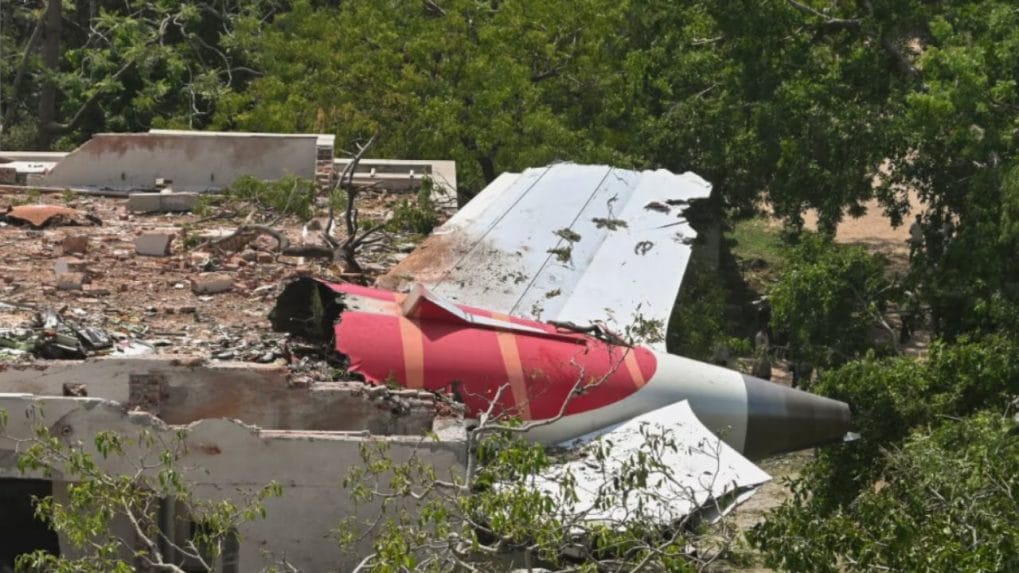How it Works
WPP, Havas, Omnicom: Are advertising’s biggest holdcos recasting agencies as AI Operating Systems?

In the moments after takeoff from Ahmedabad airport last month, Air India Flight 171 experienced a catastrophic series of failures that culminated in the deaths of more than 270 people, according to a preliminary report released by investigators.
The 15-page preliminary report published by AAIB on the Air India plane crash in Ahmedabad reveals that both engines on the Boeing 787-8 aircraft shut down seconds after liftoff, triggering a total power loss and causing the aircraft to lose altitude rapidly before it cleared the airport boundary. The plane, en route to London Gatwick, was airborne for only 32 seconds before it slammed into a nearby medical college hostel, killing students on the ground. A single passenger survived.
At 08:08:42 UTC, the aircraft reached its top recorded indicated airspeed of 180 knots. Moments later, the fuel cutoff switches for both engines were moved from “RUN” to “CUTOFF” within a second of each other, immediately halting fuel supply and causing both engines’ rotor speeds to plummet.
In the cockpit, investigators documented confusion in the final moments. One pilot is heard asking, “Why did you cutoff?” The other replies, “I didn’t.”
The aircraft’s Ram Air Turbine, a backup device that deploys during total power loss, was seen deploying on CCTV footage. Pilots attempted to restart the engines, with Engine 1 showing brief signs of recovery, while Engine 2 failed to sustain power. A “Mayday” call was transmitted at 08:09:05 UTC, but no further communication followed.
Flight data also revealed a possible mechanical or system disconnect. While the thrust levers were found in the idle position at the crash site, data indicated takeoff thrust was still engaged in the seconds before impact.
Investigators have so far ruled out weather, bird strikes, or fuel contamination as factors in the crash. The aircraft was operating within weight and balance limits, with no dangerous goods onboard. Both pilots were medically fit, rested and qualified to operate the flight.
The report notes that a prior FAA safety advisory had warned of potential fuel switch flaws in Boeing 787 aircraft, but Air India had not inspected this particular jet for the issue.
The final moments of Flight 171 were marked by a desperate attempt to restart the engines, a “Mayday” call, and a rapid descent into the medical college hostel, located 0.9 nautical miles from the runway.
Investigators have released their preliminary report on the crash of #AI171.
— Flightradar24 (@flightradar24) July 11, 2025
8:08:39: Take off
8:08:42: Fuel cut off switches moved from Run to Cutoff with a 1 sec gap
8:08:52 ENG 1 switched from Cutoff to Run
8:08:56 ENG 2 switched from Cutoff to Run
8:09:11 Recording ends. pic.twitter.com/kZrxzD3XzG
Currently, both engines have been recovered and quarantined for forensic analysis, and the wreckage has been secured for detailed examination. Investigators are analyzing cockpit voice recordings, flight data, and post-mortem reports for insights into the crash. Limited fuel samples have been sent for high-sensitivity testing.
So far, no safety warnings or grounding advisories have been issued for Boeing 787-8 aircraft or GE GEnx-1B engines. The Directorate General of Civil Aviation and the Aircraft Accident Investigation Bureau continue to lead the investigation as the families of those on board await answers.
The crash sequence
08:07:37 UTC: Aircraft begins takeoff roll.
08:08:39 UTC: Liftoff confirmed.
08:08:42 UTC: Engines shut down one after another.
08:08:47 UTC: RAT deployed as both engines drop below idle.
08:08:52–08:08:56 UTC: Fuel switches moved back to RUN, relight begins.
08:09:05 UTC: “Mayday” call sent; no further response.
08:09:11 UTC: Data recording ends.
Crash site: 0.9 NM from runway, into a medical college hostel.
From purpose-driven work and narrative-rich brand films to AI-enabled ideas and creator-led collaborations, the awards reflect the full spectrum of modern creativity.
Read MorePraveen Someshwar, Managing Director and CEO of Diageo India, joins the Grand Jury of the Storyboard18 Awards for Creativity, highlighting the awards’ focus on work that blends cultural relevance with strategic and commercial impact.